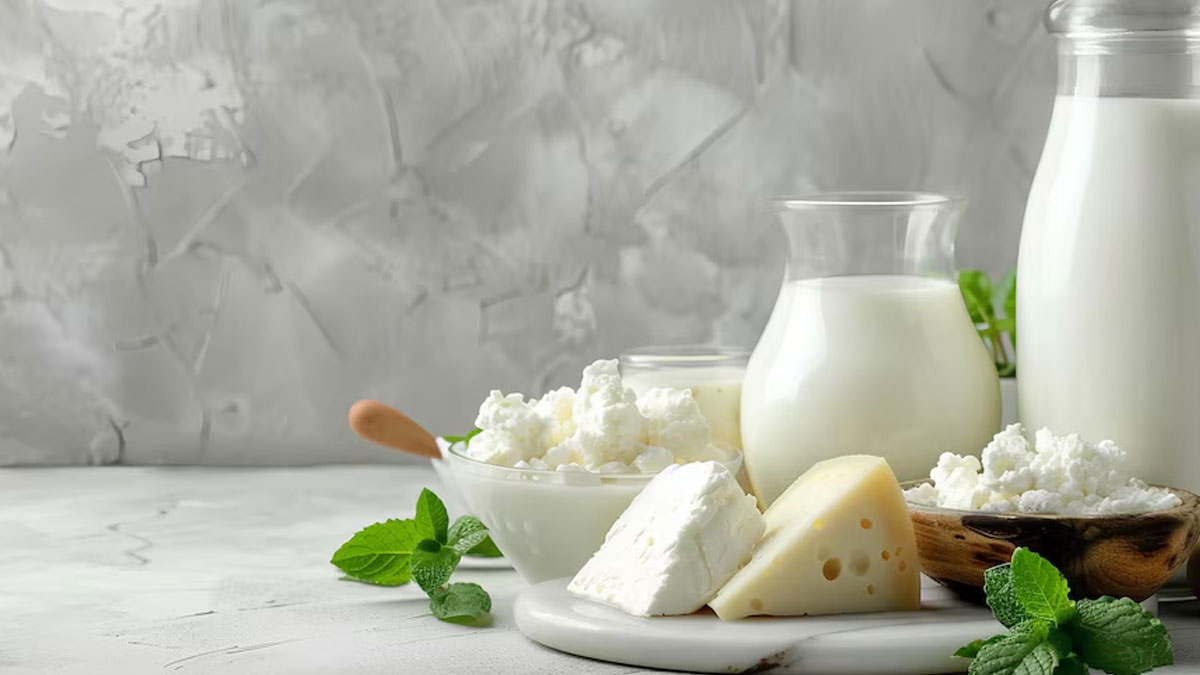
Dairy products are a great source of essential nutrients like calcium, vitamin D, and vitamin B12. They help support bone health and also reduce the risk of osteoporosis in adults and rickets in children. However, some people either do not respond well to dairy products like milk, ghee, cheese, or butter and hence choose to avoid them in their diet, or they stop consumption due to ethical reasons. We asked an expert how likely it is for people to survive on a dairy-free diet and are there any concerns that may arise from it. Here’s what she said.
Table of Content:-
Also Read: Choosing Heart-Healthy Dairy: Expert Lists Down What to Eat And Avoid
Is It Possible To Survive Without Dairy?

As far as feasibility is concerned, Dr Preeti Nagar, Dietician at Noida International Institute of Medical Sciences (NIIMS) College and Hospital, said that it is possible to thrive without dairy by choosing nutrient-rich alternatives and a well-balanced diet.
However, she warned of possible side effects, which include deficiencies in calcium, vitamin D, and other nutrients, if not adequately replaced. This in turn can impact bone health, immunity, and overall well-being, she added.
What You May Miss

For those who do consume dairy, there are a wide range of nutritional benefits that people who follow a dairy-free diet may miss. These include:
Calcium: Dairy products are rich in calcium, crucial for bone health, muscle function, and nerve transmission.
Vitamin D: Dairy is a source of vitamin D, essential for calcium absorption and bone health. Protein: Dairy offers protein for muscle growth and repair.
B Vitamins: Dairy contains B vitamins important for energy production.
How To Make Up For Dairy-Associated Nutrients In A Dairy-Free Diet

According to a 2021 study published in the journal Nutrients, about 60% of dietary calcium should come from dairy products.
However, this is not to say that plant-based beverages or dairy alternatives cannot fulfil nutritional requirements. While some plant-based alternatives may lack essential vitamins or minerals found in dairy products, with careful consideration and by being mindful of nutritional content, you can still opt for these substitutes.
For instance, fortified plant-based milk, tofu, almonds, leafy greens (kale, broccoli), chia seeds, and sesame seeds are great calcium sources. Additionally, sunlight exposure, fortified plant-based milk, fortified cereals, mushrooms, and supplements can provide vitamin D. As far as vitamin B12 is concerned, meat, fish, dairy, and poultry are primary sources. However, plant-based products like whole grains, nuts, seeds, and fortified foods can also provide vitamin B12.
Also Read: Experts Share 6 Surprising Ways Milk Can Boost Your Health
Bottomline
Dr Nagar said, “While dairy products offer essential nutrients, it is possible to maintain a balanced diet without them.”
“By choosing nutrient-rich alternatives and consulting with a healthcare provider or dietitian, individuals can meet their nutritional needs and support overall health without dairy. It's important to consider individual health conditions, preferences, and dietary requirements when making dietary choices,” she concluded.
Also watch this video
How we keep this article up to date:
We work with experts and keep a close eye on the latest in health and wellness. Whenever there is a new research or helpful information, we update our articles with accurate and useful advice.
Current Version